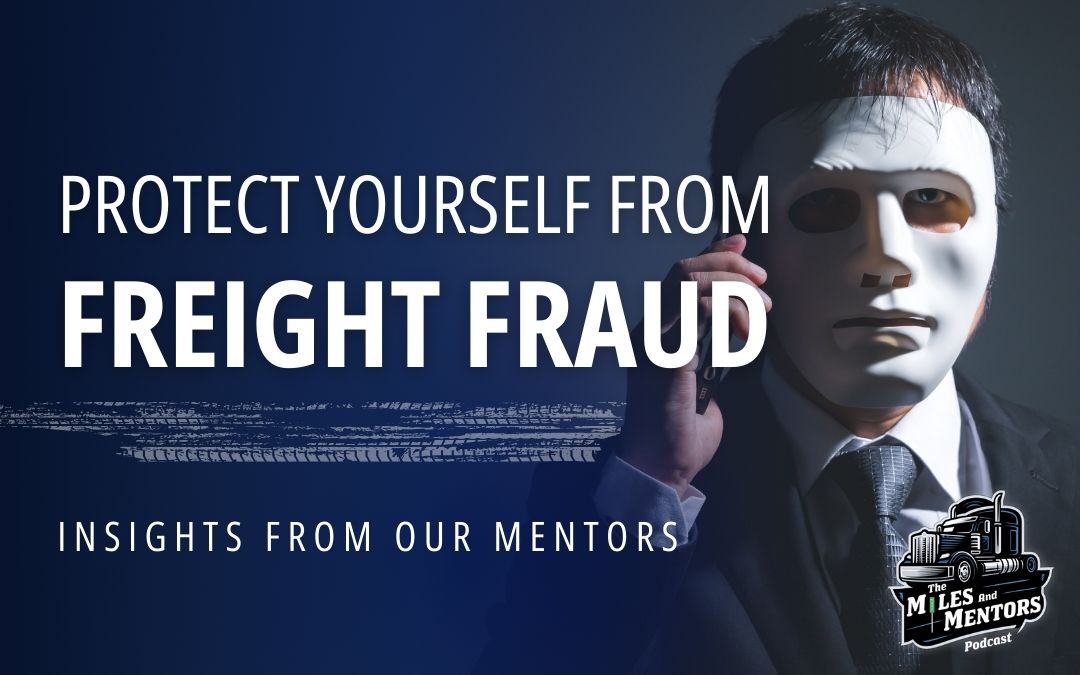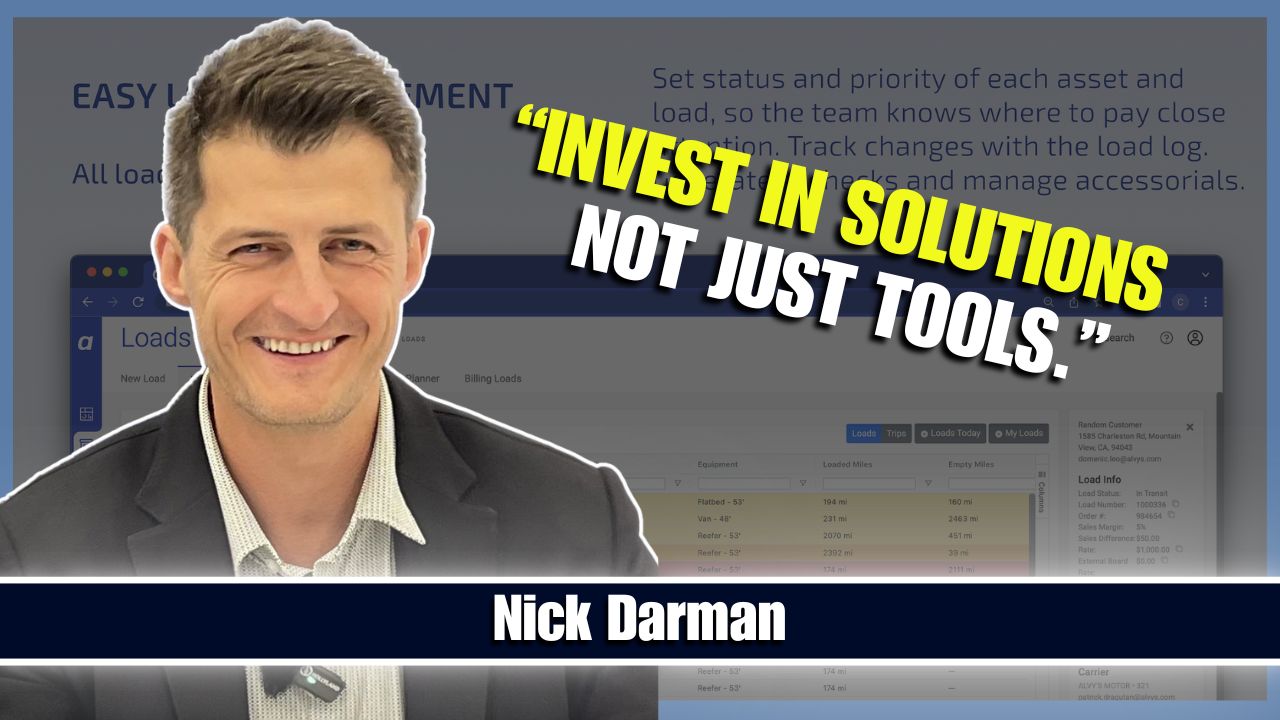Freight fraud is one of the fastest-growing threats in the logistics industry. In 2025, bad actors are using more advanced tactics to steal cargo, impersonate brokers, and manipulate freight transactions. If you are a carrier, broker, or shipper, protecting your operation requires more than just basic checks. It takes strategy, technology, and awareness.
This guide explains the top freight fraud tactics, what red flags to look for, and the steps you can take to safeguard your business. Insights from Alex Snook, co-owner of Presidential Trucking and CEO of OnSight, show how real-world experiences with cargo theft are reshaping how a modern trucking company and small trucking companies defend against fraudulent activities in the modern supply chain.
The New Face of Freight Fraud in 2025
Cargo Theft
Criminals steal entire truckloads by posing as legitimate carriers. These scammers often use cloned MC numbers, fake insurance documents, and convincing communication tactics. Once they pick up the freight, they vanish without a trace. This type of theft is affecting the freight industry at every level.
Double Brokering
In this scheme, a fraudster poses as a legitimate broker. They accept a load from a shipper, then re-broker it to an unsuspecting carrier. The carrier completes the haul, but the fraudster takes the payment and disappears, leaving the shipper and carrier at odds. This is one of the most common fraud schemes in today’s freight market. Double brokering also affects household goods shipping, especially during peak seasons.
Identity Fraud and Impersonation
Fraudsters use stolen credentials, spoofed emails, and fake websites to impersonate trusted brokers or carriers. These scams are becoming harder to detect as technology makes it easier to replicate legitimate business profiles. Data breaches and identity theft often play a role in these cases.
Phishing and Invoice Fraud
Scammers send emails that appear to come from known partners, requesting payment changes or offering fake loads. Some even submit fake invoices or use compromised email accounts to reroute funds. Freight professionals need to stay alert to prevent fraud.
A Real-World Freight Fraud Story
Alex Snook was running his brokerage operations when he faced a major blow. A full truckload of electronics was picked up by a fraudster posing as a legitimate carrier. The load disappeared, and the financial loss and operational stress were immediate.
That event led Alex to co-found OnSight, a software platform that helps shippers verify drivers at the dock using real-time check-in tools. His experience proves how vulnerable even experienced brokers can be and why freight fraud prevention must be proactive.
How to Spot Freight Fraud Before It Happens
Watch for Load Board Red Flags
- New carrier accounts with no ratings
- Unusually low rates for high-value freight
- Brokers pushing for fast bookings with little vetting
Load boards are essential to the modern trucking industry, but they have become a major target for bad actors. Scams involving fake listings and cloned broker profiles are common.
Verify Every MC Number
Always cross-check MC numbers on FMCSA’s website. Look for mismatches in contact info, sudden address changes, or carriers using free email accounts rather than company domains.
Inspect Communication Details
Watch for suspicious email formats, misspellings, and inconsistencies. Fraudsters often spoof domain names to impersonate real companies.
Best Practices to Protect Your Operation
Vet All Partners Thoroughly
Before working with any new broker or carrier, confirm:
- Business address and phone number
- Active operating authority and insurance
- References from shippers or brokers
Alex Snook emphasizes that even local relationships require formal verification. Trust alone is not a safety net anymore.
Use Technology for Security
Digital verification tools, GPS tracking, and secure communication platforms help prevent fraud. This is a vital part of risk management.
OnSight, for example, is being used by shippers to verify who is picking up their freight in real time. This type of visibility reduces risk at the dock.
Train Your Team to Recognize Fraud
Include fraud awareness in driver onboarding and dispatcher training. Teach your staff to:
- Confirm pickup details with shippers
- Identify suspicious rate offers
- Report phishing emails or payment changes
Strengthen Physical Security
Enhance cargo safety with:
- Tamper-evident seals
- Secure parking and warehousing
- Camera systems and real-time check-in verification
Review Documentation and Invoicing
Make sure all bills of lading, invoices, and shipping documents are correct and protected. Avoid sending payment information over unsecured channels. Follow commercial regulations and document integrity practices.
Maintain Compliance with Federal Motor Carrier Safety Administration Rules
Stay current with FMCSA requirements. Make sure your operation complies with all registration, insurance, and safety regulations. The Motor Carrier Safety Administration provides updated guidance to protect carrier safety and reduce risks from fraudulent activities.
Partnering With Others to Fight Freight Fraud
Collaborate With Law Enforcement and Regulatory Bodies
If you suspect fraud, report it immediately. Work with:
- FMCSA for MC number verification and fraud alerts
- Local law enforcement or cargo theft task forces
- State trucking associations and advisory services
Build Strong Industry Relationships
Trustworthy relationships with brokers, shippers, and carriers are still one of the best defenses. Share information, red flags, and suspicious patterns with your network. Groups like the Transportation Intermediaries Association (TIA) and American Trucking Associations are valuable resources.
Small trucking companies can especially benefit from community-driven support networks and frequent fraud briefings. These connections help keep small businesses competitive and secure.
Stay Informed About Trends
Attend freight fraud awareness day events, fraud prevention webinars, and follow trusted logistics news sources. Stay connected to organizations offering risk advisory services and small business support for trucking companies.
Keep Your Trucking Operation One Step Ahead of Freight Fraud
Freight fraud is evolving quickly, and every part of the logistics industry is a potential target. As Alex Snook’s story shows, even experienced operators can be caught off guard. But with the right tools, training, and vigilance, you can reduce the risk and protect your freight.
By combining technology like OnSight, thorough vetting practices, and collaboration with freight professionals and law enforcement, carriers and brokers can take control of their operations and prevent major losses. Freight fraud may be smarter in 2025, but your defenses can be stronger, too.



